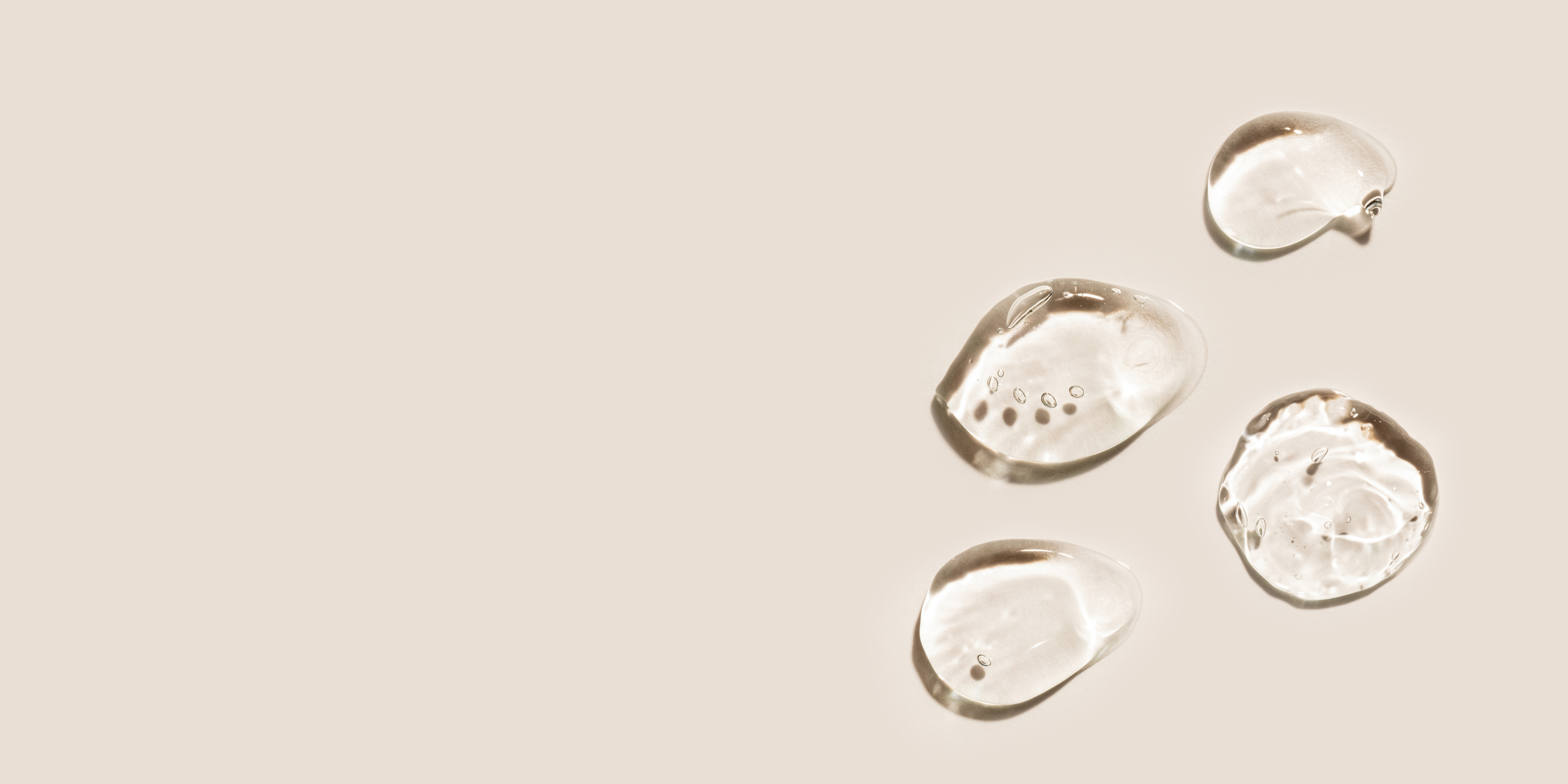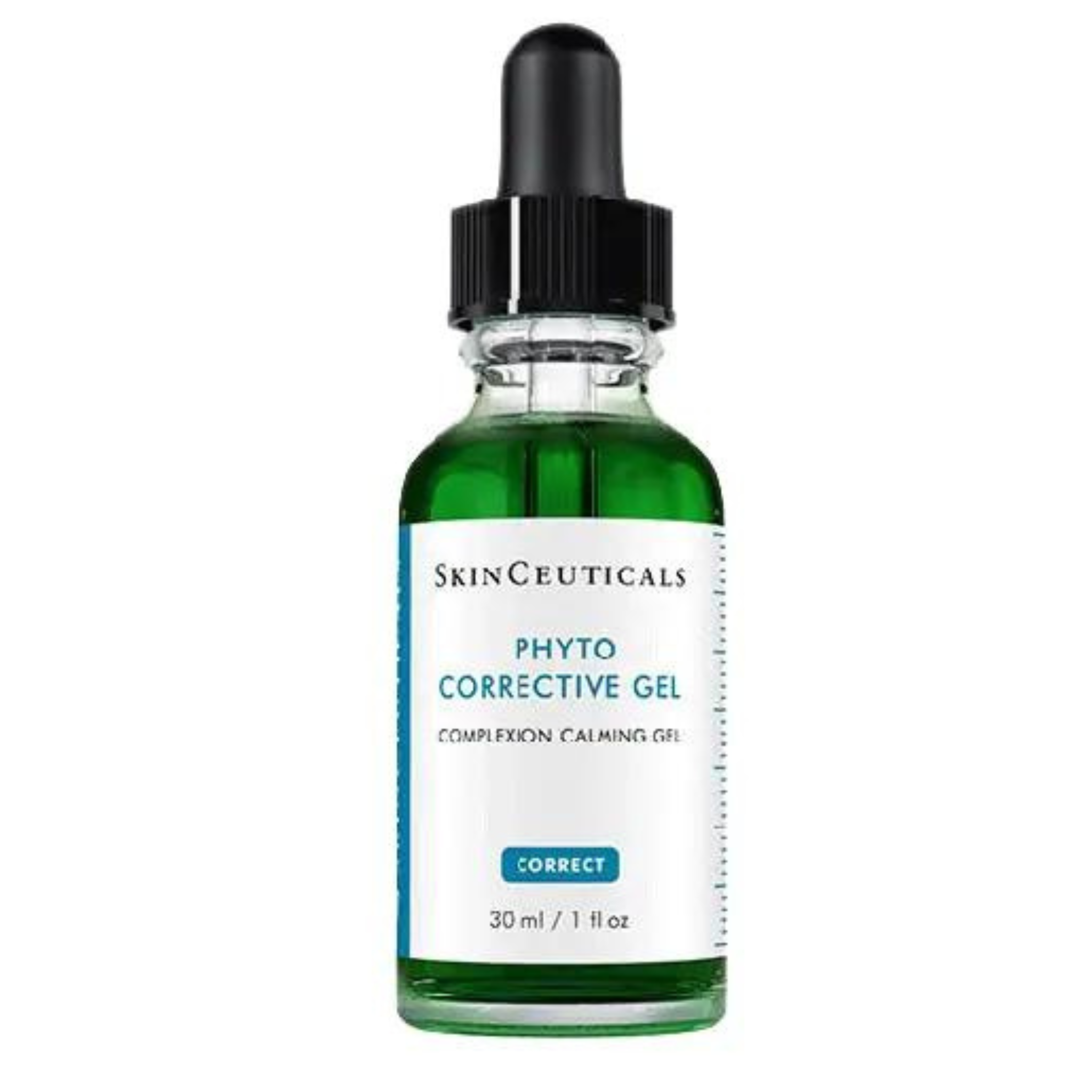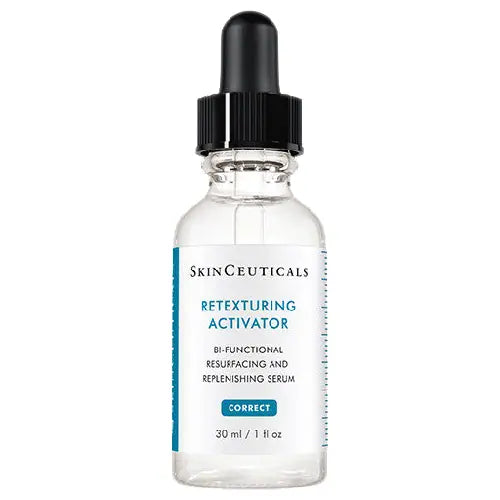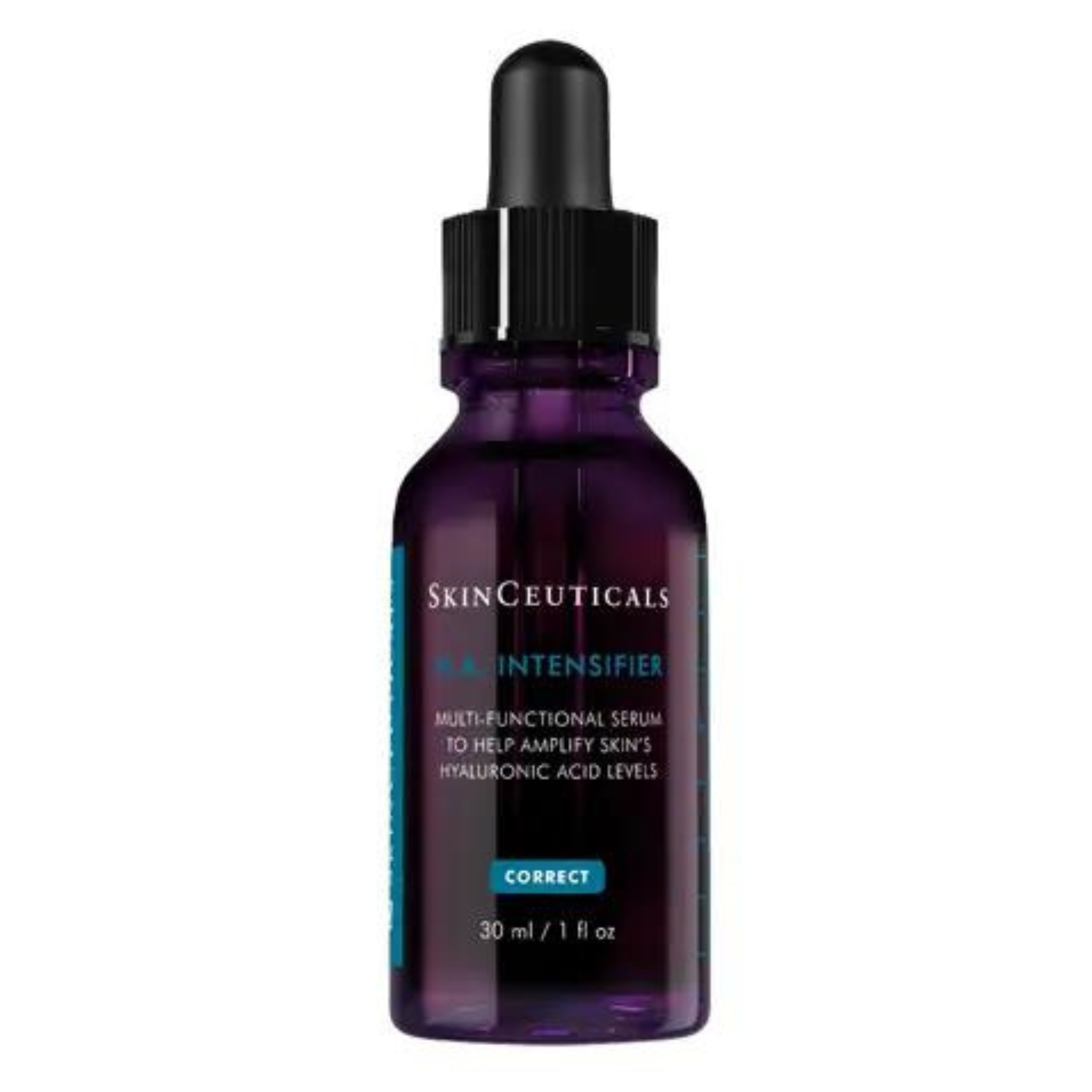What is hyaluronic acid
Hyaluronic acid, a carbohydrate molecule naturally occurring in the human body, plays a crucial role in maintaining skin hydration and elasticity. In skincare, hyaluronic acid serves as a powerful humectant, capable of holding up to 1000 times its weight in water. Scientific studies have demonstrated its ability to replenish moisture levels in the skin, leading to improved hydration and suppleness. Moreover, hyaluronic acid has been shown to stimulate collagen production and promote wound healing, making it an effective anti-ageing ingredient. Its molecular structure allows it to penetrate the skin deeply, delivering hydration to the dermis and smoothing out fine lines and wrinkles. Backed by rigorous research, hyaluronic acid stands as a scientifically proven solution for achieving hydrated, youthful-looking skin.
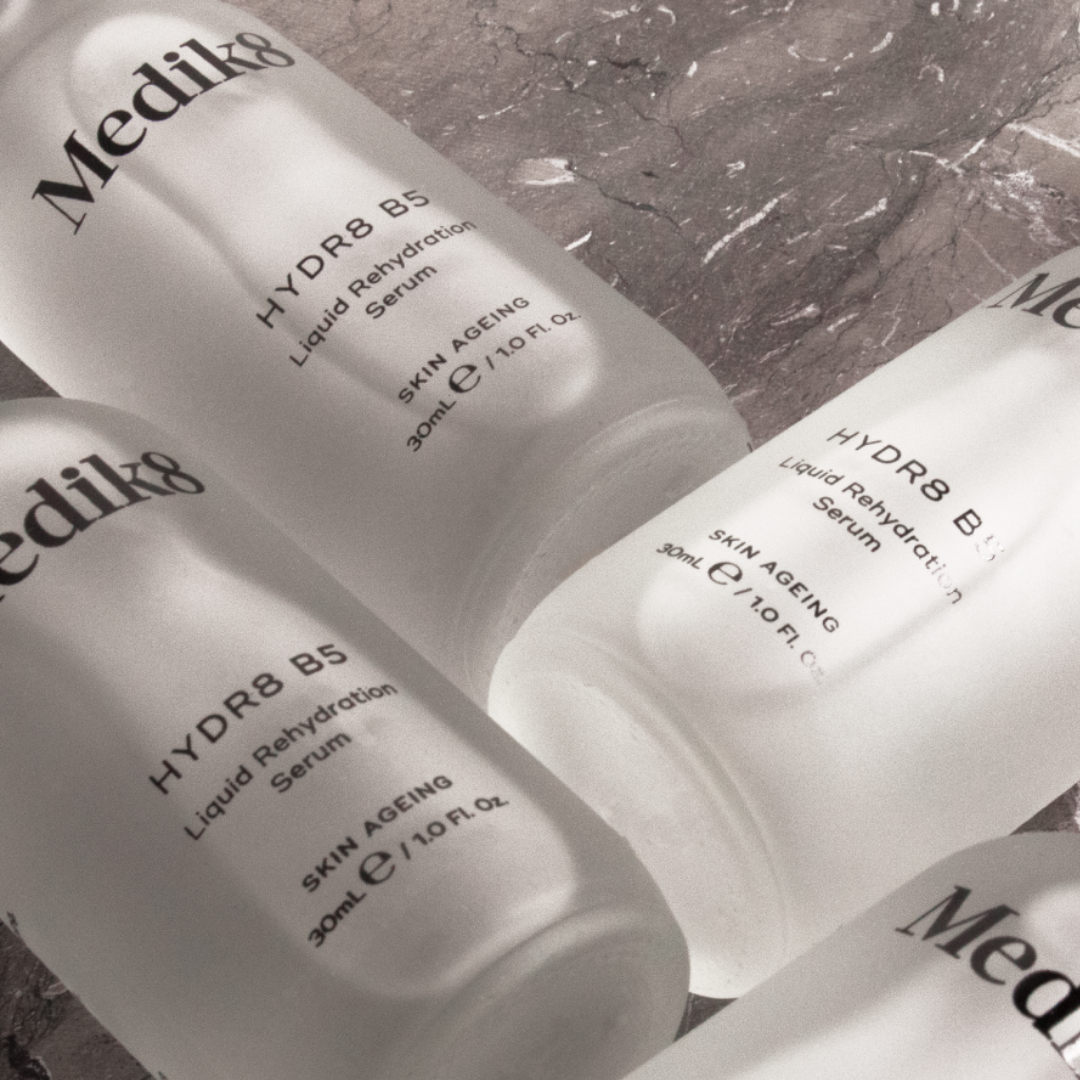
What are the benefits?
Scientific evidence supports the skincare benefits of hyaluronic acid, which stands out for its unparalleled ability to:
- Increase hydration
- Strengthen the skin barrier
- Reduce the appearance of fine lines and wrinkles
- Brighten a complexion
- Promote plumper and firmer skin
- Suitable for all skin types
Hyaluronic Acid Products for skin
Frequently asked hyaluronic acid questions
What is hyaluronic acid and what does it do for the skin?
Hyaluronic acid is a naturally occurring substance in the body that has exceptional hydrating properties. In skincare, it acts as a humectant, attracting and retaining moisture in the skin, resulting in improved hydration, plumpness, and a more youthful appearance.
Is hyaluronic acid suitable for all skin types?
Yes, hyaluronic acid is suitable for all skin types, including dry, oily, combination, and sensitive skin. Its lightweight texture and non-comedogenic nature make it compatible with various skin types without causing irritation or clogging pores.
How should I incorporate hyaluronic acid into my skincare routine?
Hyaluronic acid can be used both morning and night. After cleansing and toning, apply a small amount of hyaluronic acid serum or moisturiser to damp skin, followed by a moisturiser to seal in the hydration. It can also be layered with other skincare products.
Can hyaluronic acid cause skin irritation?
Hyaluronic acid is generally well-tolerated by most skin types and rarely causes irritation. However, in rare cases, some individuals may experience sensitivity to hyaluronic acid. It's always recommended to perform a patch test before using any new skincare product.
Can hyaluronic acid be used with other active ingredients?
Yes, hyaluronic acid can be safely used with other active ingredients such as retinol, vitamin C, and AHAs/BHAs. It complements these ingredients by providing hydration and can help to mitigate any potential dryness or irritation caused by other actives.
How long does it take to see results from using hyaluronic acid?
Hyaluronic acid provides instant hydration and plumping effects upon application. With continued use, you can expect to see improvements in skin texture, firmness, and the appearance of fine lines and wrinkles over time.
Can hyaluronic acid be used during pregnancy or while breastfeeding?
Hyaluronic acid is considered safe for use during pregnancy and breastfeeding. However, it's always advisable to consult with a healthcare professional before introducing any new skincare products during this time.
Is Hyaluronic Acid suitable for oily skin?
Symptoms of oily skin may actually be a sign of dehydration. Applying an oil free hyaluronic acid serum like SkinCeuticals Retexturing Activator Serum helps to replenish and balance moisture levels whilst exfoliating dead skin cells which may block pores.
Is Hyaluronic Acid good for acne prone skin?
Blemishes and breakouts can occur as a result of a compromised skin barrier. Hyaluronic acid in skin care helps to strengthen the skin moisture barrier, preventing bacteria from accessing deeper skin layers. For those with acne-prone skin, we recommend the oil-free Hydrating B5 Serum.
How to apply hyaluronic acid
Onto clean, dry skin in the morning and evening, apply your hyaluronic acid skin care. Each hyaluronic acid product can be used in conjunction with other ingredients, thanks to its gentle and supportive nature.


